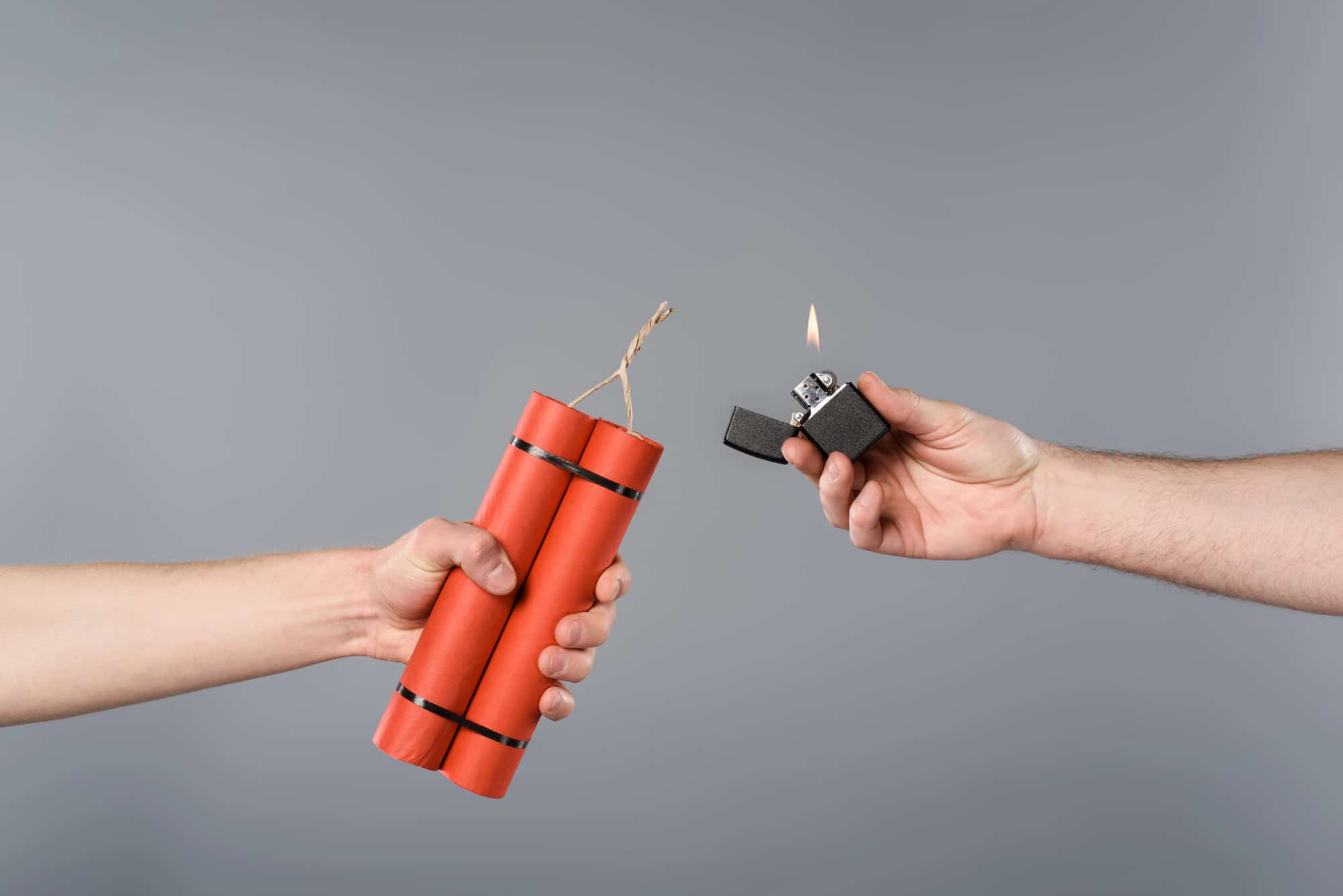In his 1894 essay “The Ethics of Dynamite,” English individualist Auberon Herbert likened the use of violence by revolutionary anarchists to the violence the state itself represents, and he drew out in his characteristically beautiful prose the nature of the state as a form of concentrated, organized violence. Herbert occurred to me as I reflected on growing political violence in the United States on the occasion of the murder of conservative activist Charlie Kirk, a man just thirty-one years of age, in an apparent political assassination. It seems likely that whoever did this (a suspect, Tyler Robinson, has been arrested) had in mind some conception of a political value which he took upon himself to enforce with deadly violence, and in so doing mimicked the worst kind of lawless, abuse of power by the state.
There are a number of reasons to expect such acts to grow in frequency, boldness, and ferocity in this country. The causes of this emerging phenomenon are not likely to be reversed, but we have it in our power to preserve our autonomy in the face of these and to refuse to be manipulated or controlled by forces beyond our control.
One of these forces are the politicians who employ hyperbole to describe their political opponents, likening them to the worst political criminals of modern history. These politicians, active and retired, are currently trotting out platitudes about how violence has no place in our “democracy” and the like, when some previously have issued threats to officials they disagree with; identityfing opposing candidates as equivalent to genocidal dictators of historic totalitarian regimes, asserting that their opponents are out to “destroy our democracy,” the Constitution, and so on. There is survey evidence that tens of millions of Americans have been convinced by such rhetoric that political violence is justifiable. When political elites repeat in every election cycle that their opponents will destroy the country, freedom, “democracy,” and so on, this becomes real to many people, and it is hardly surprising that those who lack a conscience or who have psychological problems may violently attack what they see as a threat to their cherished values.
Calls to “tone down the rhetoric” are not going to change anything. Politicians use negative attacks because they mobilize voters and donors, and frightening people is an effective political tactic. This is not going away, and as the country’s political division deepens, it will only grow more common and severe. I am old enough to remember the warm and clearly genuine friendship between political adversaries like U.S. House Speaker Tip O’Neill and President Ronald Reagan, and, more recently, between Supreme Court Justices Antonin Scalia and Ruth Bader Ginsburg; but those generations are gone. Those generations came of age in a society different than ours today in important ways, in which it was not strange for people to disagree about political matters and remain friends. Calls for us to all just get along are not likely to be successful because the kinds of social and technological change that have been underway for a long time now are not going to reverse. Instead, what is going away are the kinds of community that supported friendships among people who could agree to disagree.
The mass media are commercial enterprises that can price the advertising that is the source of much of their revenue based on the size of their audience of readers or viewers. For this obvious reason, they run stories they believe will attract the largest audience they can obtain, and negative stories do that. The media saying “if it bleeds, it leads” reflects the strategy of focusing on stories that involve conflict, scandal, negativity generally, and dramatic film or images to draw the audience in and keep their attention. What do we do when we see a wreck on the side of the road? We look. It’s human nature, and the media gives us wreck after wreck to crane our necks toward, because that is their business. This is not going to change, and no amount of calls for journalistic care will change the business model. Ideological journalism is now the norm. Norms, whether in a profession or in a society, are cultural artifacts that take many generations to develop, and once they are gone, they are not going to return. We should not expect to see any change in the media’s coverage of politics except that it will continue to build on its current trajectory of ideological narratives.
Social media has only magnified the impact of partisan and sensationalistic journalism. The “viral” story is a product of social media. There are many negative effects of social media as well as positive ones, but the most relevant here is that social media has helped wedge people into ideological silos in which they communicate mostly with people who see the world as they do, and in which their communications with people who see the world differently are frequently hostile. Social media, and mass media generally, have contributed to affective political polarization, which is the phenomenon present in the United States in which Americans are not only divided about politics but dislike and distrust those who disagree with them. We are much more likely today than a few decades ago to see people we disagree with as not only misguided, but evil. To the extent that technological change has contributed to this development, it will only continue to grow.
Government continues to grow too, and this is another reason for deepening divisions among the American public. As government grows in both absolute size and the scope of matters it governs or influences, its power over individuals strengthens. As government’s power over them grows, people have more reason to fear what government will do to them if people whom they disagree with obtain power. This fear is reasonable in a time when purportedly lawful, “democratic” regimes prosecute people for social media posts, for example. Governments are not getting smaller or weaker. On the contrary, their capacity to surveil people, to gather and store information about them, and to use it to exercise coercive control over them is increasing, in part as a consequence of ineluctable technological advance.
Underlying these changes at the most fundamental level is the dissolution of traditional community and the decline of social capital. We don’t know our neighbors and don’t care. We are socially mobile and may move many times over the course of our lives. We are professionally mobile and may change jobs more frequently than our forebears. While there are liberating positives from these social developments, one consequence of these changes is the emergence of the anomic individual not connected with any real community. We learn the moral norms that facilitate social cooperation and keep our passions under control through family and community, and as the erosion of these intermediate social structures dissolves the social order that supports freedom, the state steps in to impose order where spontaneous social order is diminishing. One of the reasons for declining social capital is that growing government has crowded it out by replacing traditional community structures such as churches and civic associations with government programs. This, like the other social developments I have mentioned, is not going away.
If these social, political, and technological phenomena that are driving social decay and growing political violence are here to stay, what do we do? I suggest that we do all we can as individuals to preserve our own autonomy by refusing to be manipulated or controlled by those forces that seek to employ us for their ends. We don’t have to doomscroll. We don’t have to listen to social media influencers and politicians. We can be politically engaged and promote our values with a smile on our face. We don’t have to hate anyone, even if they might deserve it. And yes, we can pray.

































